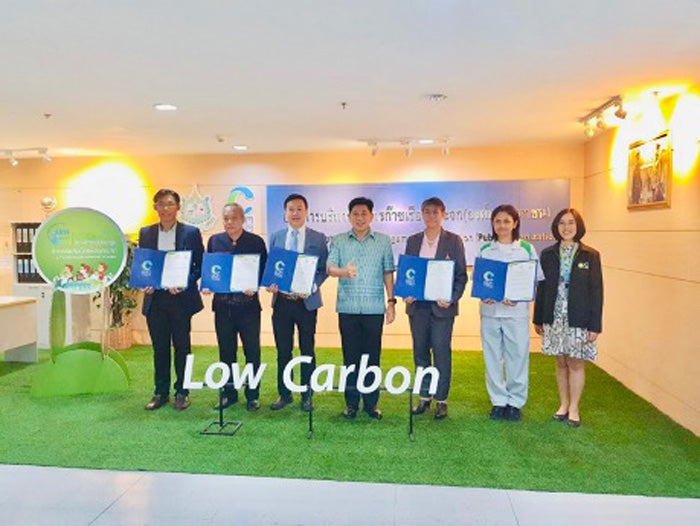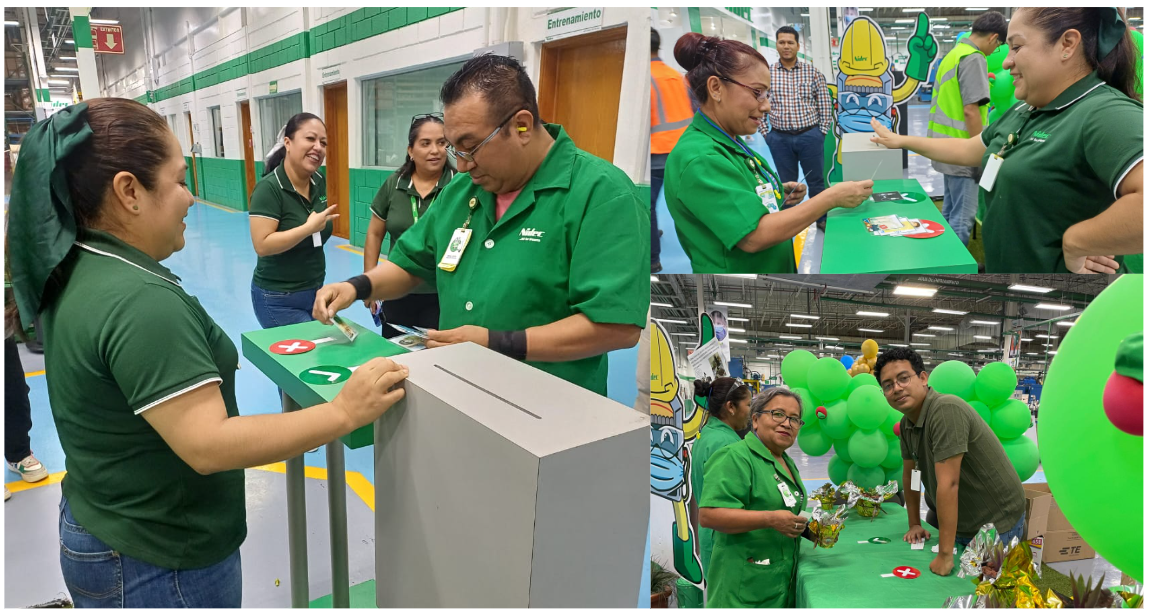Sustainable Resource Use
Resources Management
Basic stance
A global business enterprise, the Nidec Group has been aiming to reduce its business-generated waste since FY2004 by engaging in various actions steadily. As our company grows larger via M&A and other means, so does the amount of waste, as we consume more and more resources. This tendency requires us to use resources effectively, and this is why Nidec tries to minimize its waste in its manufacturing process, and also in the use of packages and packing materials. It is our belief that delivering to our customers high-efficiency motors and motor-based solutions for high efficiency (e.g., traction motor systems for EVs and cooling devices for datacenters) leads to an efficient use of not only energies but also oil, coal, and other energy resources as well. Furthermore, we also manufacture machine tools for producing motors and these solutions. We have an overwhelming share of the machine tools for aluminum cans, which are being reevaluated as plastic-free. In the future, we will consider developing measures that can contribute not only to our own manufacturing processes, but also to the effective use of resources by our customers and society.
Target
In the seventh Mid-term environmental conservation plan, we set targets for reducing the amount of hazardous waste discharged and the amount of waste and valuables generated, and we are continuing to promote efforts in pollution prevention and resource circulation through reduction activities. Furthermore, we have set "management of waste and hazardous waste" as one of the themes for our materiality initiatives, and have set a target of "reducing the amount of waste, valuables, etc. generated per unit of sales by 3% in fiscal year 2025 compared to fiscal year 2022."
The seventh mid-term environmental conservation plan
| Item | Three-year targets (FY2025 goals) |
|---|---|
| Waste generated | Reduce the volume of waste generated in intensity per unit sales by at least 3% from the level of FY2022 |
| Hazardous waste generation | Reduce the volume of waste generated in intensity per unit sales by at least 3% from the level of FY2022 |
Materiality: Contribute to environmental sustainability
| Theme to be addressed | KPI (FY2025) |
|---|---|
| Manage waste and hazardous waste | Reduce the volume of waste generated in intensity per unit sales by at least 3% from the level of FY2022 |
Achievements
Achievements in waste and hazardous waste management
The amount of waste generated in fiscal year 2023 was 289,269 tons, a 9.7% reduction per unit of sales compared to fiscal year 2022. This is the result of ongoing efforts such as thorough waste separation and effective use of resources through increased production efficiency. The amount of hazardous waste generated per unit of sales was also reduced by 4.0%. We will continue to monitor the situation and take steps to prevent further contamination.
| Section | Unit | FY2022 | FY2023 |
|---|---|---|---|
| Waste generated | t | 304,245 | 289,269 |
| Hazardous waste generated | t | 11,859 | 11,980 |
| Recycling of waste generated | t | 114,259 | 245,888 |
| Final disposal of waste generated | t | 209,216 | 48,191 |
Waste and valuable resource generation status
In the classification by resource, which began in fiscal year 2022, due to insufficient classification, other solid waste (non-hazardous) accounted for 155,567 tons, or approximately 50% of the total. However, by fiscal year 2023, as resource classification had become more widespread within the company, it was discovered that much of the material could be classified as metals. As a result, the amount of metals generated has increased significantly in fiscal year2023, but we are now ready to implement specific reduction measures for each resource.
Breakdown of waste generated
| Item classification | FY2022 | FY2023 | |||
|---|---|---|---|---|---|
| Amount[t] | Amount[t] | ratio | |||
| Metal | Iron | 60,155 | 156,827 | 54.2% | 69.3% |
| Aluminum | 6,102 | 10,503 | 3.6% | ||
| Copper | 3,647 | 4,546 | 1.6% | ||
| Other non-ferrous metal scrap | 32,919 | 28,525 | 9.9% | ||
| Plastics | Plastics | 11,095 | 18,741 | 6.5% | 6.5% |
| Paper | Paper | 7,106 | 7,314 | 2.5% | 2.5% |
| Wood | Wood | 4,647 | 9,110 | 3.2% | 3.2% |
| Sludge | Sludge | 4,811 | 7,264 | 2.5% | 2.5% |
| Other solid waste | Non-hazardous | 155,567 | 27,381 | 9.5% | 11.3% |
| hazardous | 8,697 | 5,367 | 1.9% | ||
| Liquid waste | Waste oil | 5,813 | 5,344 | 1.9% | 4.7% |
| Waste acid | 328 | 2,371 | 0.8% | ||
| Waste alkali | 196 | 267 | 0.1% | ||
| Other liquid waste (hazardous) | 3,162 | 5,709 | 2.0% | ||
| Total | 304,245 | 289,269 | 100% | ||
Cost of outsourcing waste processing and recycling
To ensure a legal and secure waste processing and recycling in the management of waste and hazardous waste, we need to manage our costs properly. In FY2023, we incurred 52million yen for the outsourcing of waste processing work.
Nidec’s outsourcing cost of waste processing and recycling in FY2023
| Item | Cost (in millions of yen) |
|---|---|
| Outsourcing of waste processing and recycling | 52 |
Research and development costs for reducing environmental impacts related to pollution and resources
Nidec is working to reduce defects and improve productivity in order to reduce waste generation. Research and development costs for fiscal year 2023 are estimated at 187 million yen.
Research and development costs for reducing environmental impact in fiscal year 2023
| Item | Cost (in millions of yen) |
|---|---|
| Research and development costs for reducing environmental impact | 187 |
Actions
Nidec’s actions to reduce the generation of waste on the product front includes the promotion of saving resources by reviewing product development and designing processes. In addition, in our manufacturing process, where improving material yields is important, we analyze waste generated per resource and visualize losses as we address various issues. Analyzing the amount of waste generated per resource led us to re-realize that ferrous waste is the waste generated the most, and revealed that we will be able to reduce the waste by reducing the machining loss from our production process.
We continually work to promote recycling through sorting waste as foundation for these initiatives. Each business sites also works to enlightenment activities for employees along with securing enough storage area for waste and displays and explaining the sorting method in local language to understand easily. Nidec Global Appliances Brazil provides training on waste separation rules in order to solve common mistakes and questions about waste separation. Knowledge of waste separation is useful not only at the office but also at home and in the community.
_resize.jpg)
.jpg)
Additionally, Nidec Electronics (Thailand) Rojana Factory actively participated in project activities promoted by the Thailand Greenhouse Gas Management Organization under the Thai Ministry of Natural Resources and Environment and was awarded for its achievements in 2022. We were able to reduce 738,661 tons of greenhouse gases generated from waste processing through recycling efforts through the separation of factory waste in this initiative.

Organization at Nidec Electronics (Thailand) Rojana Factory
Nidec Global Appliance Mexico, S.DE R.L. DE C.V. steadily spreads its circle of actions to all over the world though a workshop featuring an environmental quiz and many other activities.

